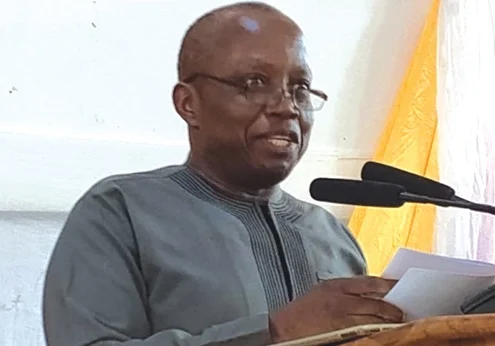Paragraph 1: The Mandate of the ORAL Committee
The Operation Recover All Loot (ORAL) Committee, a five-member body commissioned by the President, stands poised to submit its highly anticipated report today, February 10, 2025. This committee was established as a direct response to a key campaign promise made by the President to recover allegedly stolen state resources. The recovery of these assets is seen as crucial for the nation’s development and the fight against corruption. The committee’s mandate is to lay the groundwork for the efficient and effective retrieval of these misappropriated funds, paving the way for their reintegration into the national treasury. The submission of this report marks a significant milestone in the pursuit of transparency and accountability within the government.
Paragraph 2: Composition and Confirmation of the Report Submission
The ORAL Committee comprises five prominent individuals known for their integrity and commitment to good governance. The members are Samuel Okudzeto Ablakwa, Daniel Yaw Domelevo, Martin Kpebu, Raymond Archer, and Nathaniel Kofi Boakye. Mr. Domelevo, the former Auditor-General and a member of the committee, publicly confirmed the report’s imminent submission via a Facebook post, heightening public anticipation and signaling the culmination of the committee’s investigative work. His statement, “The report will be presented today—if you know, you know. For God and Ghana, no fear or favour,” underscores the committee’s dedication to an impartial and fearless approach in fulfilling its duties.
Paragraph 3: Presidential Commitment to Anti-Corruption Efforts
The President’s commitment to addressing corruption has been a recurring theme of his administration. In a recent address in Cape Coast, he reaffirmed his pledge to combat this pervasive issue and reiterated the importance of the ORAL Committee’s work. He assured the nation that upon receiving the report, it would be immediately forwarded to the relevant institutions, including investigative bodies and prosecution agencies, responsible for pursuing cases of corruption and related offenses. This underlines the president’s determination to ensure that the findings of the committee translate into concrete action and that those found culpable are held accountable. The President’s proactive stance signals a strong commitment to tackling corruption head-on.
Paragraph 4: A Holistic Approach to Governance: Beyond Infrastructure
While acknowledging the importance of infrastructure development, the president emphasized that his vision for Ghana extends beyond physical progress. He stressed the importance of securing a brighter future for the next generation, and positioned transparency, accountability, and good governance as integral components of this vision. This highlights a holistic approach to governance, recognizing that lasting progress requires not only physical infrastructure but also strong ethical foundations and a commitment to the rule of law. The President’s emphasis on these principles signals a departure from a purely infrastructure-focused approach and suggests a more nuanced understanding of sustainable development.
Paragraph 5: Strengthening Accountability and Transparency
To further solidify his commitment to good governance, the president announced plans to implement a more robust system of accountability within the government. This will involve the introduction of a comprehensive code of conduct for individuals holding positions of trust, aimed at preventing conflicts of interest and promoting ethical behavior. This code of conduct, along with other measures, will help to ensure transparency in government operations and strengthen public trust. The President’s commitment to implementing these reforms signifies a deeper commitment to institutionalizing good governance practices.
Paragraph 6: An Impartial Pursuit of Justice: Holding All Accountable
Crucially, the President emphasized that his anti-corruption drive will not be selective. He stated categorically that officials from both the previous and current administrations will be held accountable for any wrongdoing. This commitment to an impartial pursuit of justice is crucial for building public confidence in the government’s anti-corruption efforts. By ensuring that no one is above the law, the President aims to foster a culture of accountability and deter future instances of corruption, regardless of political affiliation. This declaration underscores his unwavering commitment to ensuring that all citizens, regardless of their position or political affiliation, are subject to the rule of law.


